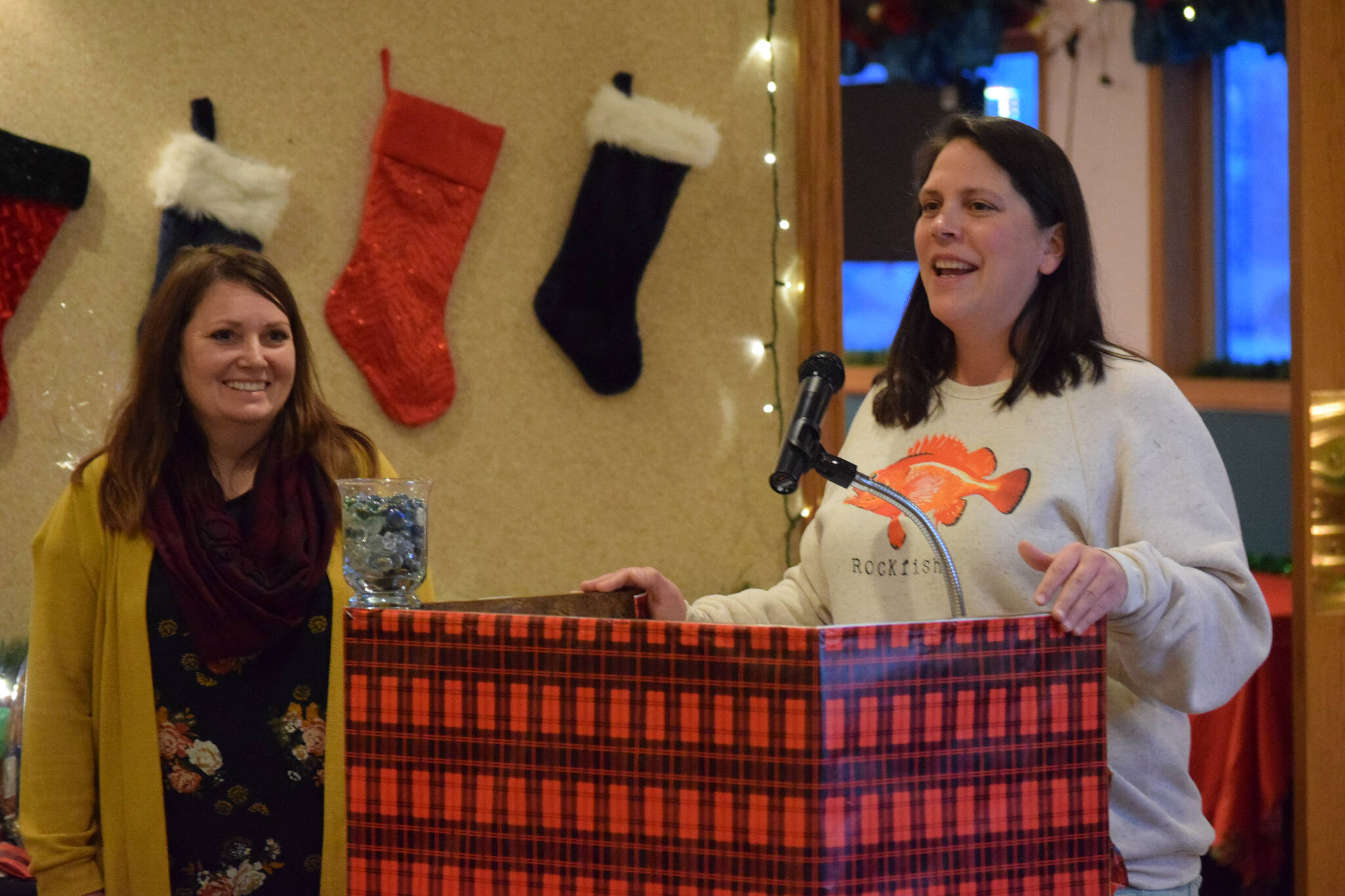The Kenai Peninsula is being represented by two of the eight seats on a new statewide group tasked with reviewing the ways the State of Alaska supports students experiencing homelessness.
Kelly King and Nicole Murphy, both employees of the Kenai Peninsula Borough School District, accepted nominations this year to serve on the Alaska Homeless Education Advisory Team. King is a homeless liaison coordinator for the district and Murphy is an at-risk support specialist.
The state group is tasked with reviewing and updating Alaska’s McKinney-Vento policies and procedures and helping develop professional development opportunities related to those policies, among other things, and will function only as an advisory group.
Adrianne Schwartz, the Education of Homeless Children and Youth Program manager for the Alaska Department of Education and Early Development, said via email that Alaska’s Homeless Education Advisory Team was established in June, met for the first time in August and will meet monthly during the school year.
The McKinney-Vento Homeless Assistance Act is a piece of federal legislation first signed in 1987 that required states to revise policies to ensure “the immediate school enrollment” of children experiencing homelessness, according to the U.S. Department of Education.
The legislation says students and youths experiencing homelessness have the right to school enrollment even if they do not have records, have the right to remain at their school of origin — the school they were last enrolled in, have the right to receive transportation to and from that school and have the right to receive support for academic success.
The section of the McKinney-Vento Homeless Assistance Act that addresses education has been reauthorized by the No Child Left Behind Act in 2002 and by the Every Student Succeeds Act in 2015, and received $114 million in federal funding in 2022.
Per the McKinney-Vento Act, children experiencing homelessness could be sharing housing with other people due to a loss of housing or economic hardship, living in a motel or campground, living in an emergency shelter or awaiting foster care placement, living in cars or public spaces or be an unaccompanied youth.
Within KPBSD, students experiencing homelessness receive services through the Students in Transition Program, headed by King and Murphy. That program aims to remove barriers between students experiencing homelessness and academic opportunities and achievement.
Average enrollment in that program is about 240 students, King told the Clarion in early October, ranging from Pre-K through 12th grade in nearly every school and community. The district’s caseload does not carry over each school year, and as of Oct. 2, 105 students had been deemed eligible for services.
King told the Clarion earlier this month that KPBSD requires all school staff to complete an online McKinney-Vento training at the beginning of each school year, with homeless liaisons provided additional, direct training throughout the year. Through those trainings, King said they clarify who qualifies for services, present current district data and offer sensitivity and awareness training.
“Our belief is that the more people are aware of the program and student rights and protections under the law, the more people will be referred or reach out, and the more students will get the support they are eligible for,” King said. “Our goal is that students facing housing insecurity have what they need to continue attending school and to be successful.”
It’s important to remember, King said, that people experience homelessness for different reasons, such as a poor housing market, loss of a job, family illness or death, domestic violence, substance use or youth being kicked out from their homes. The stigma around being homeless, she said, sometimes discourages people from seeking services.
“The more misunderstanding and stigma we put into the community, the fewer people reach out for help out of fear of being judged,” she said.
When it comes to her work on the state advisory group, King said she hopes to use her 15 years of experience overseeing KPBSD’s Students in Transition Program and Murphy’s close work with KPBSD’s homeless and unaccompanied youth will be beneficial to the group.
“We are hoping that this work will help guide policy and practice and support Liaisons around the State in feeling strong in their roles to ultimately serve children and youth experiencing homelessness in Alaska in the most meaningful ways possible,” she said.
More information about how the McKinney-Vento Homeless Assistance Act is administered in Alaska can be found at education.alaska.gov.
Reach reporter Ashlyn O’Hara at ashlyn.ohara@peninsulaclarion.com.


